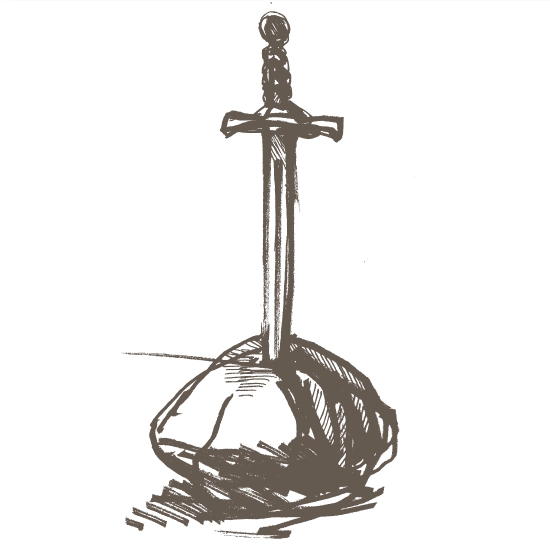Welsh is a British Celtic language which is a branch of the Indo-European language family, spoken throughout much of Western Europe in Roman and pre-Roman times. Old Welsh and Middle Welsh were spoken in medieval Wales.
Language
Welsh belongs to the Brittonic group of Celtic languages, alongside Cornish, Breton, and the now-extinct Cumbric. The history of Welsh is traditionally divided into several phases: Early Welsh (from the 6th to the 9th century), Old Welsh (9th–11th century) and Middle Welsh (12th–15th century).
Literature
The oldest writing in Welsh consists of glosses and marginal poems, and perhaps some of the epic poetry such as Y Goddoddin (The Goddodin), poems of Taliesin, a series of elegies for the men of the Brittonic kingdom of Goddodin, who died at the battle in Catraeth around 600, which is preserved in later manuscripts.
Welsh medieval prose includes literary tales, romances, historical narratives, and scientific, medical, and mythological texts.
The following are our main sources for medieval Welsh literary and historical texts:
- The Black Book of Carmarthen (1250)is the earliest surviving manuscript written solely in Welsh. It contains religious poems, odes of praise and mourning, and also a small group of triads about the horses of legendary Welsh heroes. Several poems in the book are also associated with the mythical figure of Merlin, the wizard and adviser to King Arthur.
- The White Book of Rhydderch (1350) was probably copied for Rhydderch ab Ieuan Llwyd who came from a family with a long tradition of literary patronage. It contains the earliest copies of Welsh prose texts as well as poems and Christian religious writings.
- The Red Book of Hergest (1382) contains prose tales, historical texts, including a Welsh translation of Geoffrey of Monmouth’s The History of the Kings of Britain, poems and herbal remedies.
The Mabinogion (1350-1410) Both the White Book of Rhydderch and the Red Book of Hergest preserve the eleven tales, collectively known as The Mabinogion – a title derived from the word mabinogi, which may mean “story of youth”. Drawing heavily on oral tradition, this collection contains mythological and heroic narratives whose roots go back to ancient Celtic mythology and the early heroic age of Britain. In these stories, mortals encounter supernatural beings, such as Gwydion the shapeshifter, who can create a woman out of flowers, or Math the magician, whose feet must rest in the lap of a virgin. Some tales – such as Peredur son of Efrog, Geraint son of Erbin or Owain or the Lady of the Well – also deal with Arthurian themes. However, unlike the French chivalric romances, where King Arthur appears as an idealized ruler presiding over a magnificent court, the Welsh tales depict Arthur as a legendary war leader, often endowed with magical powers.
Authors
- Dafydd ap Gwilym (c. 1315/1320 – c. 1350/1370)
- He is regarded as one of the leading Welsh poets and among the great poets of Europe in the Middle Ages. It is believed that about 170 of his poems have survived, though many others have been attributed to him over the centuries. His main themes were life and nature. He was an innovative poet who was responsible for popularizing the metre known as the “cywydd” and the first to use it for praise. His best-known works include the following poems.
- Morfudd like the sun, a poem to the wife of a merchant who seems to have had a long affair with Dafydd.
- The girls of Llanbadarn, in which he speaks of going to church on Sunday to ogle the local women.
- Trouble at a tavern, in which he comically recounts the injuries and difficulties he faces trying to meet his lover in a tavern.
- Guto'r Glyn (c. 1412 – c. 1493)
Interesting facts
King Arthur
The earliest mentions of the legendary king come from Welsh sources. He is mentioned, for example, in Historia Brittonum by the monk Nennius, in Culhwch and Olwen from the Mabinogion tales, which is believed to be the first Arthurian tale, or in a dramatic poem Pa ŵr yw y Porthor? (What man is the Gatekeeper?). The Middle Welsh texts are roughly contemporary with the work of Geoffrey of Monmouth, who gave us our first heroic biography of King Arthur in his 12th-century Historia Regum Britanniae (History of the Kings of Britain).






